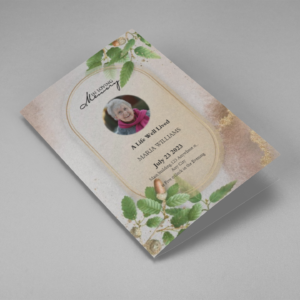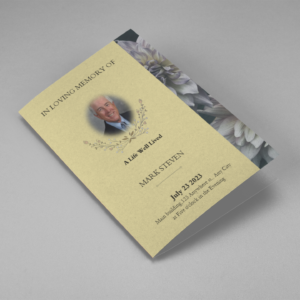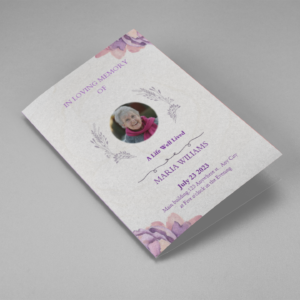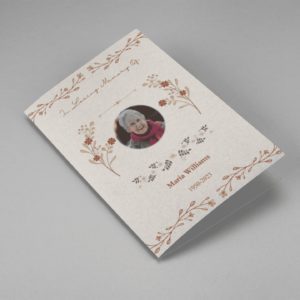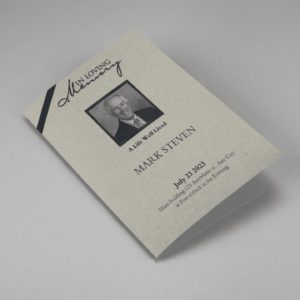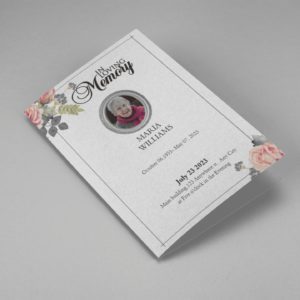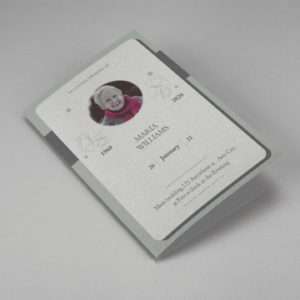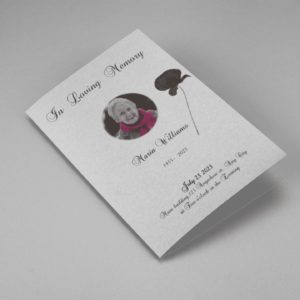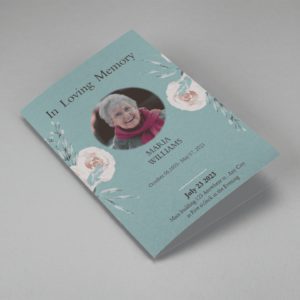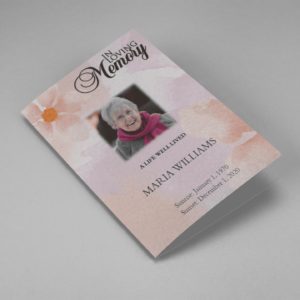When a loved one passes away, one of the most challenging tasks is writing an obituary that honors their life while providing important details to family and friends. Sample Obituaries can be a powerful tool in this process, offering inspiration and guidance to help you create a meaningful tribute during a difficult time.
On this page, you’ll learn about the benefits of using Sample Obituaries, explore the different types available, and find tips on how to craft the perfect obituary for your loved one. Whether you’re looking for ideas or need a starting point, this guide will provide the resources and advice to help you through the process.
What is Sample Obituaries?
A sample obituaries are an example of an obituary that explains the structure, content, and tone found in an obituary. It is treated as a template or model that can be used as a starting point when writing an actual obituary for a loved one or someone in the community.
Sample obituaries often include essential information such as the person’s name, age, date of birth, and date of death. They may also provide details about the person’s background, including their birthplace, parents’ names, and educational history. It also highlights the person’s notable accomplishments, professions, interests, and hobbies. You can mention important awards, or contributions the individual made during their lifetime,
Writing Sample Obituary
Writing a sample obituary involves carefully crafting a tribute that holds the essence of a person’s life while providing necessary information to the readers. Here are some guidelines for writing a sample obituary.
- Gather the necessary information: Collect details such as the full name of the deceased, age, date of birth, date of death, place of death, and surviving family members.
- Start with a concise introduction: Start the obituary with a brief statement announcing the passing of the individual, including their full name, age, and date of death.
- Give a summary of their life: Share some highlights and important aspects of the person’s life, such as their accomplishments, professions, hobbies, or community involvement. Focus on capturing their unique qualities and contributions.
- Include information about surviving family members: Mention the names and relationships of immediate family members who survive the deceased, such as spouses, children, siblings, and grandchildren.
- Share details about funeral or memorial services: Provide information about the upcoming services, including the date, time, and location of the funeral, visitation, or memorial.
- Complete the obituary with a meaningful statement: End the obituary with a heartfelt sentence or paragraph expressing the importance of the person’s life and the impact they had on others.
Example of Writing Sample Obituaries
[Deceased’s Full Name]
[Deceased’s Full Name], [Age], passed away on [Date of Death] in [Place of Death]. [He/She] was born on [Date of Birth] in [Place of Birth], to [Father’s Full Name] and [Mother’s Full Name].
[Deceased’s Full Name] led a remarkable life filled with [his/her] passions and accomplishments. [He/She] dedicated [his/her] life to [describe notable achievements, professions, or areas of expertise]. [He/She] was known for [mention characteristic traits, hobbies, or interests] and was deeply respected by [his/her] peers.
[Deceased’s Full Name] will be remembered for [his/her] [mention positive qualities or impact on others]. [He/She] touched the lives of many through [his/her] [mention community involvement, philanthropy, or other contributions].
[Deceased’s Full Name] is survived by [his/her] beloved [spouse/partner’s name], [children’s names], [siblings’ names], and [number of grandchildren]. [He/She] will be greatly missed by [his/her] family and friends.
A funeral service to celebrate the life of [Deceased’s Full Name] will be held on [Date] at [Time] at [Location]. The family kindly requests that any charitable donations be made to [Charity/Organization Name] in memory of [Deceased’s Full Name].
We will forever cherish the memories of [Deceased’s Full Name]’s remarkable life and the impact [he/she] made on all those who knew [him/her]
Sample Obituaries Templates
-
Searching for a Oak Leaf With Gold Oval Frame Half Page Funeral Program that is easy to print and amass and has a cutting-edge look? The Oak Leaf With Gold Oval Frame Half Page Funeral Program is the Perfect decision because it measures 8.5”x 5.5”.
- No Limitation on Content, Edit anything
- Edit anytime – unlimited revisions even after purchased
- Get a printable PDF downloaded to get it printed on your own.
-
Searching for a Brown and White Classic Funeral Program Half Page Program that is easy to print and amass and has a cutting-edge look? The Brown and White Classic Funeral Program Half Page Program is the Perfect decision because it measures 8.5”x 5.5”.
- No Limitation on Content, Edit anything
- Edit anytime – unlimited revisions even after purchased
- Get a printable PDF downloaded to get it printed on your own.
-
Searching for a Purple Elegant Watercolor Half Page Funeral Program Template that is easy to print and amass and has a cutting-edge look? The Purple Elegant Watercolor Half Page Funeral Program Template is the Perfect decision because it measures 8.5”x 5.5”.
- No Limitation on Content, Edit anything
- Edit anytime – unlimited revisions even after purchased
- Get a printable PDF downloaded to get it printed on your own.
-
Searching for a Cream and Green Photo Obituary Half Page Program that is easy to print and amass and has a cutting-edge look? The Cream and Green Photo Obituary Half Page Program is the Perfect decision because it measures 8.5”x 5.5”.
- No Limitation on Content, Edit anything
- Edit anytime – unlimited revisions even after purchased
- Get a printable PDF downloaded to get it printed on your own.
-
Searching for a Cream Simple Elegant Photo Church Half Page Program that is easy to print and amass and has a cutting-edge look? The Cream Simple Elegant Photo Church Half Page Program is the Perfect decision because it measures 8.5”x 5.5”.
- No Limitation on Content, Edit anything
- Edit anytime – unlimited revisions even after purchased
- Get a printable PDF downloaded to get it printed on your own.
-
Searching for a Samovar Silver Half Page Funeral Program Template that is easy to print and amass and has a cutting-edge look? The Samovar Silver Half Page Funeral Program Template is the Perfect decision because it measures 8.5”x 5.5”.
- No Limitation on Content, Edit anything
- Edit anytime – unlimited revisions even after purchased
- Get a printable PDF downloaded to get it printed on your own.
-
Searching for an Elegant Beige Half Page Funeral Program Template that is easy to print and amass and has a cutting-edge look? The Elegant Beige Half-Page Funeral Program Template is the Perfect decision because it measures 8.5”x 5.5”.
- No Limitation on Content, Edit anything
- Edit anytime – unlimited revisions even after purchased
- Get a printable PDF downloaded to get it printed on your own.
-
Searching for a White Floral Pro Half Page Funeral Program Template that is easy to print and amass and has a cutting-edge look? White Floral Pro Half Page Funeral Program Template is the Perfect decision because it measures 8.5”x 5.5”.
- No Limitation on Content, Edit anything
- Edit anytime – unlimited revisions even after purchased
- Get a printable PDF downloaded to get it printed on your own.
-
Searching for a Grey and Burgundy Elegant Half Page Funeral Program Template that is easy to print and amass and has a cutting-edge look? Grey and Burgundy Elegant Half Page Funeral Program Template is the Perfect decision because it measures 8.5”x 5.5”.
- No Limitation on Content, Edit anything
- Edit anytime – unlimited revisions even after purchased
- Get a printable PDF downloaded to get it printed on your own.
-
Searching for a Soft Green and Grey Minimalist Floral Half Page Funeral Program Template that is easy to print and amass and has a cutting-edge look? Soft Green and Grey Minimalist Floral Half Page Funeral Program Template is the Perfect decision because it measures 8.5”x 5.5”.
- No Limitation on Content, Edit anything
- Edit anytime – unlimited revisions even after purchased
- Get a printable PDF downloaded to get it printed on your own.
-
Searching for a Gray Elegant Oval Frame Half Page Funeral Program Template that is easy to print and amass and has a cutting-edge look? Gray Elegant Oval Frame Half Page Funeral Program Template is the Perfect decision because it measures 8.5”x 5.5”.
- No Limitation on Content, Edit anything
- Edit anytime – unlimited revisions even after purchased
- Get a printable PDF downloaded to get it printed on your own.
-
Searching for a Blue Organic Minimal Half Page Funeral Program Template that is easy to print and amass and has a cutting-edge look? Blue Organic Minimal Half Page Funeral Program Template is the Perfect decision because it measures 8.5”x 5.5”.
- No Limitation on Content, Edit anything
- Edit anytime – unlimited revisions even after purchased
- Get a printable PDF downloaded to get it printed on your own.
-
Searching for a Pink and Orange Watercolour Half Page Funeral Program Template that is easy to print and amass and has a cutting-edge look? Pink and Orange Watercolour Half Page Funeral Program Template is the Perfect decision because it measures 8.5”x 5.5”.
- No Limitation on Content, Edit anything
- Edit anytime – unlimited revisions even after purchased
- Get a printable PDF downloaded to get it printed on your own.
-
Searching for a Pink Floral Paper Half Page Funeral Program Template that is easy to print and amass and has a cutting-edge look? Pink Floral Paper Half Page Funeral Program Template is the Perfect decision because it measures 8.5”x 5.5”.
- No Limitation on Content, Edit anything
- Edit anytime – unlimited revisions even after purchased
- Get a printable PDF downloaded to get it printed on your own.
Benefits of Sample Obituaries
Sample Obituaries serve as templates that help you structure and compose a meaningful narrative that reflects the life of the deceased. Here are some key benefits of using them:
- Guidance During a Difficult Time: Writing an obituary can be an emotional task. Sample obituaries provide a foundation that helps reduce the burden by offering examples to follow, making the process easier and less overwhelming.
- Inspiration and Personalization: Samples offer ideas on how to phrase certain details, organize information, and capture the essence of a person’s life. They allow you to personalize the obituary by following a proven structure while ensuring that no important details are missed.
- Efficiency: During times of grief, time can be limited. Sample obituaries save time by providing pre-structured formats, enabling you to focus on adding personal touches rather than worrying about the overall layout.
- Professional Tone: Many people struggle with how to write a respectful and appropriate obituary. Using a sample ensures that your writing maintains a tone that is both professional and heartfelt, even if you are not experienced in obituary writing.
Types of Sample Obituaries
There are several types of Sample Obituaries available, each catering to different needs. Here are some common types:
- Traditional Obituaries:
- These follow a formal structure, including the deceased’s full name, date of birth and death, a brief biography, family members, and funeral service details.
- Example: “John Smith, 78, of [City], passed away peacefully on [Date]. Born on [Date] to [Parents], he was a beloved father, husband, and friend…”
- Personalized Obituaries:
- These are more informal and focus on sharing personal anecdotes, achievements, and the character of the deceased. This type is ideal for highlighting unique aspects of the person’s life.
- Example: “Jane Doe was not just a mother; she was an artist, a storyteller, and the brightest light in every room she entered. Her laughter was contagious, and her love for adventure knew no bounds.”
- Brief Obituaries:
- Ideal for those looking to keep things concise, brief obituaries focus on the most important information, such as key milestones and service details.
- Example: “[Name], age [Age], passed away on [Date]. A private service will be held for family and close friends.”
- Military Obituaries:
- Specifically designed to honor veterans and military personnel, these obituaries highlight the deceased’s service to their country, including details of rank, branch, and commendations.
- Example: “Captain [Name], a decorated veteran of the United States Navy, passed away on [Date]. He proudly served his country for [Number] years and earned [Medals/Honors].”
- Religious Obituaries:
- These include faith-based language and references, often incorporating prayers or scriptures that were meaningful to the deceased.
- Example: “[Name] was called home to be with the Lord on [Date]. A devout [Religion], [Name] found peace in their faith and was a cherished member of [Church/Community].”
How to Choose the Right Sample Obituary
Choosing the right obituary style depends on several factors. Here are a few things to consider:
- Tone and Formality: Do you want a traditional and formal obituary, or are you looking for something more personal and light-hearted? Think about how the deceased would want to be remembered.
- Length: If space or budget is a concern (especially with newspaper obituaries), you might opt for a brief format. For online platforms or memorial websites, there may be fewer restrictions on length.
- Audience: Consider who will be reading the obituary. If the deceased was part of a military community, for example, you may want to highlight their service. For religious communities, a faith-based tone may be more appropriate.
- Customizability: Some sample obituaries are easily customizable, allowing you to add or remove sections based on what you feel is necessary.
Tips for Creating/Using Sample Obituaries
- Start with Basic Information: Always begin with the most important details—name, date of birth, and date of death—before moving into the narrative.
- Include Meaningful Details: Use the sample as a guide but don’t hesitate to include personal stories, hobbies, achievements, and characteristics that made the deceased unique.
- Check for Accuracy: Ensure that all dates, names, and locations are correct. Double-check spellings and the accuracy of any biographical information you include.
- Stay Respectful: While personalization is encouraged, be mindful of the tone. Avoid details that may be too private or that could be uncomfortable for readers.
- Keep It Structured: Samples provide structure for a reason. Stick to the standard format—begin with biographical details, move to family, and end with funeral service information for consistency and clarity.
Funeral Program Template - How to Videos
Frequently Asked Question On Sample Obituaries
While writing an obituary from its sample you must have some questions in your mind which makes it difficult in completing it. Here are the most common questions which can come to your mind:
How can a sample obituary help me?
Sample obituaries offer guidance and inspiration when writing an obituary for a loved one. They can help you understand the essential components, such as including factual details, and highlighting accomplishments. Samples also provide a starting point for crafting a unique and meaningful tribute.
Can I use a sample obituary as it is?
No, a sample obituary should be personalized to accurately reflect the life and personality of the individual being honored.
Can I modify a sample obituary to fit my needs?
Absolutely! You can modify the language, add or remove sections, and include specific details that accurately represent the life and legacy of the deceased.
Can I use a sample obituary for someone who passed away a long time ago?
Yes, sample obituaries can be useful for writing tributes even if the person passed away long ago. You can adapt the template by incorporating historical context and adjusting the language to reflect the time period in which they lived.
What should I include in a sample obituary?
A sample obituary typically includes essential details like the person’s name, age, date of birth, and date of death. It should also highlight their accomplishments, interests, community involvement, and surviving family members.


